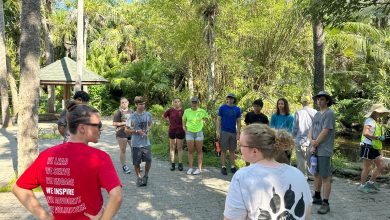Living Green is Inexpensive
by Cathy Abidin
The bets are off…living green doesn’t mean breaking your bank accounts. Living green is as simple as positioning your plates away from the fried foods to the wholesome vegetables. Most people argue that living green consists of buying and using green gadgets, eating organic foods, and recycling everything you own—that is simply not true!
Here are a few ways you can follow your way to Living Green without emptying your wallet:
Start Your Own Garden—Having your own garden saves money and it decreases your health risks from the exposure of chemically grown vegetables and fruits. Imagine eating a salad from your very own backyard. A garden doesn’t mean a big piece of land where you grow vegetables and fruits from A to Z. Even if you don’t have a backyard, it’s no excuse not to garden. There are a number of ways you can garden: you can plant in a garden bed, patio pots, or on a windowsill. Did you know you can also garden indoor? Small fruits, peppers and tomatoes grow well indoor. Before you begin, plant fruits and vegetables that you’re most likely to eat in a daily basis. For example, leaf lettuce, cherry tomatoes, cucumbers, chives, cilantro, etc. With these selections, you’ve just created your homegrown salad, free from pesticides.
DON’T Buy Packaged Food, DO buy Whole Foods – The next time you stroll down the aisle of a local supermarket, look for foods that are not packaged. Find food that are not encased in plastic or cardboard wrappers. For example, nuts, fruits, vegetables, by the pound meats and deli. Did you know that it requires a lot more energy to produce packaged foods? Packaging requires an 8-Step Process: Physical Protection, barrier protection, containment, information transmission, marketing, security, convenience, and portion control. The majority of these packages are made from petroleum (biodegradable). When you go grocery shopping avoid using stores plastic bags instead use your own bag, such as a canvas bag (reusable canvas bag cost around $0.99 to $1.00) or a container. You’ll save a lot more money, taking care of your health, and giving back to Mother Nature!
Replace your Paper Towels with Cloth Napkins—Paper towels can be expensive and requires so many trees to be pulverized. Look around your closet and find old towels, shirt, and bed sheet… use these items for your napkins instead. You can wash and reuse these items once their soiled. With the use of cloth napkin, 1.5 million tons of paper napkins are saved from crowding the landfills and eventually the oceans. Once again, you’re saving money and the Planet Earth!
Join your local CSA, wait… do you know what a CSA is? – CSA is stand for Community Supported Agriculture. CSA allows consumers to purchase local and seasonal food from the farmers. The organization is great for both consumers and farmers. Consumers get extra fresh food and there’s no risk in exposing food to phytochemicals that are required for keeping fruits and vegetables fresh during shipping. For more information regarding Community Supported Agriculture: http://www.localharvest.org/csa/
Go Shopping for What You Need and Don’t Live above Your Means—Shopping can be an addiction for both males and females. But the reality is, shopping can be costly and time consuming. When you go shopping list out the items you need to purchase and do shop for what you need not what you want. If you have seven pairs of washed out jeans in the closet don’t buy two more at the Mall or while browsing through the internet. Think of what you wear daily and purchase items that you can actually wear more than once. Like the Rolex you saw at the store, YES, the one with the silver band… that can wait! I promise you, your saving account will thank you. On the contrary, purchase necessity items such as socks, undergarments, buttoned up shirt for work, comfortable shoes, etc. You’ll realize after a year of control in your spending: your savings increases, your summer vacations are longer and much more enjoyable!
Be a Wise Driver– If you live in the city, it’s easy to walk from one location to another. Walking distance is feasible and public transportation is available. If you live in suburbia or the great American outdoor then transportation is most likely by driving. I know this, because I live in a small coastal town in Florida. Walking is possible unless if I want to reach the Marketplace sometime in the next week… Keep in mind the more you walk, the more you’ll lose energy, same goes with driving. The more you drive the more gas you will be burning. Try saving money by carpooling and limit your grocery shopping trips to once a week. Transfer your billings to online bill payments so you eliminate the trips to the post office or the City Hall. If you’re planning on traveling, plan a head, use a GPS, obtain a map, so you don’t waste time, money, gas, and energy on getting lost.
FLY With A Peace of Mind—So I hear you want to travel to the other side of the world such as Australia or Indonesia? But the last time you checked for airfares for your summer get away are costing you an arm and a leg. According to farecompare.com and ehow.com, the best time to purchase your airline tickets domestically are Tuesdays at 3pm EST. For domestic and international flights, find days for the flight on Tuesdays, Wednesdays, and Thursdays. The flights are less crowded on those days and airline are likely to sell the tickets cheaper. So leave with a peace mind and enjoy your vacation.
Be Health Savy—Being a college student is not an easy job, working while trying to study at the same time is not a circus act but can sometime run us down. With crazy schedules and costly doctor visits, working students and individuals are less likely to bring themselves to a local clinic or physician for a yearly checkup… Well, that naughty behavior can STOP NOW! The cost of a yearly checkup may be expensive but there is also a way you can maintain and/or improve your health by simply taking care of your body and attending health screening events for free or reduced amount. For example a health fair screening offers diabetes, cancer, blood pressure, STD’s, cholesterol screenings. During the summer months, the American Cancer Society offers free skin cancer screenings at local Dermatologist offices, for more information visit the following website for further information: http://www.asds.net/find_volunteer.aspx.





